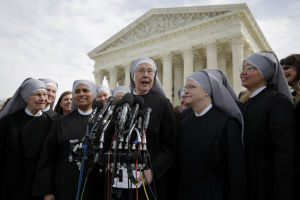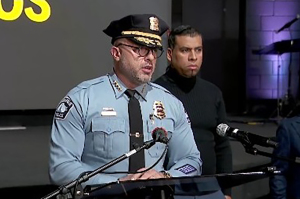An Inside Look at a New Generation of Pastors: Dharius Daniels (Pt. 3)
But I believe that truth is in the people's best interest. So if you believe the truth sets people free, if you believe the scriptures are God's blueprint to human flourishing, to people's best life, the life that Jesus died to give, I feel like it's almost ministerial malpractice for you not to teach truth. It's almost arrogance parading itself as humility. It's almost like you're suggesting that "I know better than God when it comes to this area and this is something I don't need to talk about it." But the Scriptures talk about it because it needs to be talked about. Our teachers here try to view it through that lens, that this is God's blueprint to your best life. We're not beating you across the head with orthodoxy, but when culture starts talking about these issues — this is what's disturbing to me — it seems like as culture gets louder, the church gets silent in the name of tolerance. But what happens is, when you're silent and culture's talking, culture is discipling. So we'll have people in our churches worshiping, they're worshipping in our churches, but they're being discipled by culture because we won't do truth. That helps give me the courage and our teachers the courage not to shy away from certain issues. I did a teaching called "Truth and Justice," and I challenged when all of our partisan allegiances take precedent over our Christianity.
CP: How do you keep the Bible in one hand, preaching orthodox theology, but balance that with being relevant to the young generation and engaging the culture?
Daniels: For me, it starts from my perspective. For me orthodoxy is for the purpose of orthopraxy. It's not right doctrine just for right doctrine; it's right doctrine for right living. So if a preacher's or pastor's goal is always right living, I think their message becomes a balanced message because your end-game is right living. When you see it that way, you automatically become practical. You'll look at a message and say "what does God want them to know in this message, and what does God want them to do?" That's the question that I ask and it's what I challenge our teachers to ask themselves.
CP: What is the balance between evangelism and edification (discipleship) when you're preaching to mostly saved people in the congregation?
Daniels: First of all, I believe the separation of evangelism and discipleship is an unbiblical separation. I believe the purpose of evangelism is discipleship. When I read the Great Commission, Matthew 28:19, I hear "go make disciples." We aren't winning them just so that we can get them into heaven, and I think sometimes we treat it that way. Heaven is important and it's real, but salvation isn't like a "get out of hell free" card. It's not a destination, it's a door that leads to a new life under new management. For us, we know we can't form them until we win them, so let's go win them. As we're forming them, we try to teach them, and we do this through our Kingdom Academy and I teach an evangelism series maybe every other year, that as I'm being formed spiritually, part of my spiritual formation is understanding my responsibility to be a witness. So evangelism doesn't become that thing that the church does or that thing that the ministry does. It becomes just as germane to Christianity as prayer is. I'm a Christian so I pray, I give, I worship, I witness. In Acts 1:8 Jesus said you'll receive power when the power of the Holy Spirit comes upon you and you'll be witnesses. I don't see how anybody grows a church nowadays without doing that, because it's harder to do it now. We started the church eight years ago and it's harder to do it today than it was eight years ago.
Read previous articles in this series:
An Inside Look at a New Generation of Pastors: Levi Lusko (Pt. 1)
An Inside Look at a New Generation of Pastors: Matt Chandler (Pt. 2)



























